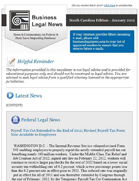


The South Carolina Statutory Close Corporation Supplement to the Business Corporation Act both relaxes the strict requirements for adherence to corporate formalities which allow for limited personal liability, and for the elimination, in part or in whole, of most of the formalities themselves.
A statutory close corporation is a corporation whose articles of incorporation contain a statement that the corporation is a statutory corporation. Typically, a close corporation is one whose shareholders are actively involved in managing the business. The corporation is in this sense “closely held” by the shareholders in the company. In the State of South Carolina, every corporation (including a professional corporation and professional association) consisting of one more shareholders may elect statutory close corporation status.
 The Supplement states that the failure of a statutory close corporation to observe the usual corporate formalities or requirements relating to the exercise of its corporate powers or management of its business affaires is not a ground for imposing personal liability on the shareholders for liabilities of the corporation.
The Supplement states that the failure of a statutory close corporation to observe the usual corporate formalities or requirements relating to the exercise of its corporate powers or management of its business affaires is not a ground for imposing personal liability on the shareholders for liabilities of the corporation.
Moreover, a statutory close corporation allows for the elimination of many, if not most, corporate formalities. For example, a statutory close corporation may operate without a board of directors if its articles of incorporation contain a statement to that effect. Instead, the corporate shareholders may agree in writing to manage the corporation and its affairs in the way that a partnership would, if there is more than one shareholder. The shareholders may generally make any type of agreement between themselves regarding the regulation of the business, as long as it is in writing. The Supplement cites several possible examples to show the flexibility that shareholders are given in making such an agreement, including:
A statutory close corporation need not adopt bylaws if provisions required by law to be contained in bylaws are contained in either the articles of incorporation or a shareholder agreement. These mandatory bylaw provisions include: (1) the time and place of shareholder meetings, (2) the number of directors, (3) the notice to be given of director’s meetings, and (4) the time, method of election, and authority of the officers.
A statutory close corporation is also not required to hold an annual meeting of the shareholders unless one or more shareholders deliver written notice to the corporation requesting a meeting at least thirty days before the meeting.
Because close corporations typically have shareholders who also manage the affairs of the business, it is often desirable for many close corporation shareholders to prevent or limit the ability of shareholders to transfer shares to third parties. This is especially true where a close corporation operates much like a partnership, using a shareholder agreement, or where a business is family owned and operated and wants the option of remaining so. Therefore, unless stated otherwise in the articles of incorporation or allowed under a list of exceptions which may themselves be negated in the articles of incorporation, the shareholders can elect to prevent in the voluntary or involuntary transfer of shares in the statutory close corporation.
If such provisions are elected, a person desiring to transfer shares of a statutory close corporation must first offer them to the corporation by obtaining an offer to purchase the shares for cash from an eligible third person. The corporation may then allocate some or all of the purchased shares to one or more of its shareholders, or upon unanimous shareholder approval to other persons.
A statutory close corporation in its articles of incorporation may also provide that the corporation be compelled to purchase all the shares of a shareholder upon his or her death.
In short, the election to be statutory close corporation in the State of South Carolina offers business owners greater freedom from corporate formalities and greater organizational flexibility than does a standard corporation. However, taxation issues remain the same as with any other type of corporation. Every statutory close corporation is by default taxed under Subchapter “C,” unless it otherwise specifically elects to be taxed under Subchapter “S.” The majority of statutory close corporations elect to be taxed under Subchapter “S.” (See Subchapter “C” Federal Income Taxation and Subchapter “S” Federal Income Taxation for additional information.)
Finally, whereas operating as a statutory close corporation allows business owners to elect their way out of most of the formalities associated with standard corporations, LLCs have few, if any, formalities in the first place. So there is no need to elect out of such formalities. If business owners are determined to be a corporation, then they might want to consider forming a statutory close corporation. If they have not already decided to form a corporation, then they might also want to consider organizing as an LLC if the avoidance of corporate formalities is of special importance. See the separate sections on Statutory Close Corporations and Limited Liability Companies.
Get answers now to your important legal questions and concerns.

Copyright © 2009- Small Business Law Firm, LLC. All Rights Reserved. This document is protected by U.S. and International Copyright Laws. You agree that use of these materials are restricted to authorized users (current and prospective clients only) and shall not be used for other commercial purposes without the express written permission of the Small Business Law Firm, LLC.
By using this website, you agree to read the important legal notices and disclaimers and be bound by the terms and conditions set forth in the Legal Disclaimer section and other sections of this website. Should a dispute arise with regard to your use of the contect of this website, you expressly agree to be subject to the the jurisdiction of the State of South Carolina
Small Business Law Firm, LLC
Serving South Carolina: Columbia(main office), Charleston, Greenville(satellite office appointments by prior agreement & by virtual services), other SC Locations (virtual services only)

Follow us